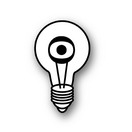 We are presently witnessing the proliferation of negatively polarised social structures, such as the appearance of new conservatism, which is increasing in Europe and elsewhere. This can be observed in post-communist countries, which tend to revert to left-wing values unacceptable to contemporary capitalism.
There are also many revisionist right-wing histories of World War II now being published, attempting to rehabilitate Quislings and Fascists, not only in Slovenia, Croatia, Serbia and Slovakia, but also in Germany and the United States. There are also increasing signs of xenophobia in traditionally open societies such as Holland and France, while religious-based conflicts between Muslims, Christians and Jews continue to develop on a global scale.
Despite – or perhaps as a consequence of – the new logic of globalisation, individual attachments to local environment, family, education and religion do not diminish or disappear. The question arises: Is the increase of the new conservatism, xenophobia and religious fundamentalism reflective of a basic human or social need for identity and a sense of security and belonging to one’s own community? Or is it the consequence of social engineering by manipulative religious teachers, politicians, and elders who exert influence on the development of children and young adults. |
Key questions that we intend to investigate are: - Can religion make a contribution to tolerance and understanding and to the conflict solution, or is it sometimes actually at the root of intolerance and conflict situations?
- Can religion provoke intolerance and religious and ethnic polarisation, which is then exploited and intensified by political leaders?
- How important is the role of family education with respect to ethnic and racial intolerance? How are children brought up to regard other religions, and what kind of information and guidance about other nationalities and religions in their locality do they get from parents and teachers? What are Slovenian children told about Croatians, Serbs, Bosnians? What do Turkish parents tell their children about Greeks and Jews?
- How do different national educational authorities and institutions decide on, and implement, an approach to these issues? And how do the resulting textbooks differ?
- What are different points of view of religious teachers (Orthodox and Catholic priests, Muslim imams, etc.) regarding inter-faith tolerance and understanding, and how do they put across these views?
- What are the thoughts and ideas of ordinary people in the street regarding ethnic and religious tolerance?
- What kind of experiences regarding different races and religions, and also ethnic and religious tolerance, do young people have? And what are their thoughts and ideas about these issues? What kind of impact on the development of the individual do national and religious upbringings have?
Cultural and religious diversity and difference should be understood as positive factors in contemporary European culture; as rich and vital elements out of which Europe should be building its cultural future. Intercultural dialogue and tolerance between different ethnic, religious and social groups is necessary for future stability and for positive cultural development of the European space. In the present context of religious and cultural intolerance in many parts of the continent, it is increasingly difficult to put forward arguments for the value of difference, and for how can we live with difference. How to open up new discourses and dialogues that will address the productive possibilities inherent in the religious and cultural complexity of Europe now? The project Divided God would be an example of positive intercultural practice, in which young people could explore, in their own ways - and, crucially, based on personal experiences - how religion can be a personal and intimate experience as well as a cultural value of a particular group, and how it might function without the kind of political and ideological influences that lead to conflict and fragmentation. The practical outcomes of the project will also be appropriate for educational purposes in different institutional and intercultural learning programmes - in the form of filmed presentations, theoretical readings and supported discussions. |
|

 About the project
About the project  Project Idea ©2005 Karsten Sill. All rights reserved.
Project Idea ©2005 Karsten Sill. All rights reserved.